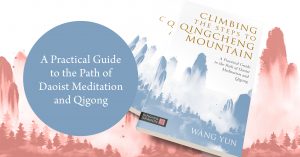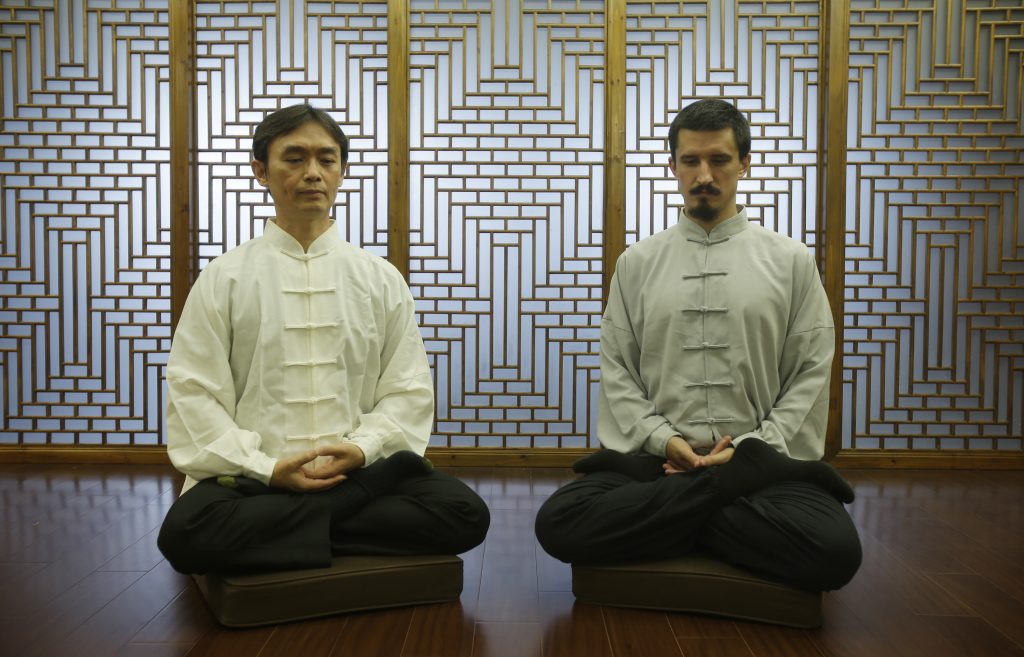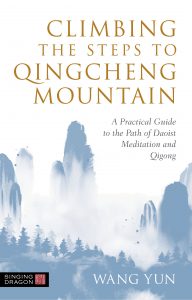 Wang Yun is a Daoist master and a Buddhist lineage holder of multiple schools, as well as a successful teacher and author and sought-after public speaker in Taiwan and Asia. He has published dozens of bestsellers in the fields of health, spirituality, history, religion and Chinese literature. His work is translated into English for the first time in Climbing the Steps to Qingcheng Mountain, a Daoist memoir and manual for physical health and mental balance through meditation and Qigong.
Wang Yun is a Daoist master and a Buddhist lineage holder of multiple schools, as well as a successful teacher and author and sought-after public speaker in Taiwan and Asia. He has published dozens of bestsellers in the fields of health, spirituality, history, religion and Chinese literature. His work is translated into English for the first time in Climbing the Steps to Qingcheng Mountain, a Daoist memoir and manual for physical health and mental balance through meditation and Qigong.
The master’s students have sat down with him to discuss the book, and ask for practical advice to live a more balanced life.
What is Qi exactly and why is it important to cultivate it?
Qi is breath, and breath shouldn’t really be something that needs to be cultivated, but because people these days don’t know how to breathe correctly, they must be reminded how to cultivate it. There are a lot of physical and mental illnesses that didn’t use to afflict people but are now constantly assaulting modern people. The best way to address these is through regulation of the breath.
Why do people struggle so much mentally (and physically) in this day and age?
The main reason why people struggle mentally and physically today is because of the constant search for fame, fortune, and selfish gains: in these pursuits they create more and more stress and anxiety. All these problems arise from emotions, and these take root in the mind. The mind is the origin of all physical ailments. That’s why people should practice qigong.
What practical advice can you offer your readers in dealing with stressful situations in their daily lives?
The best way to address our psychological struggles is to lower our level of greed, desire, and grasping to the lowest possible standard, to the point of letting go of them. Concerning the setbacks we experience, we try our best to let go of them, to not be attached to them. In terms of our physical body, practicing meditation and qigong, as well as breath regulation and the ancient Chinese methods of daoyin, are all very beneficial. All of these will be of great help to the body and mind.

About letting go of grasping being more important than meditation, can you explain a bit more please? What is letting go of the grasping mind and attachments?
The best way to let go of attachments is not to attach to begin with. If your mind becomes fixed on a certain place for more than an instant, this is attachment. You have to know what the moment is, what being in the moment is. This “moment” is the place where your mind never leaves and never enters. That’s the moment. If you can guard and take care of every moment, this is what I refer to as “letting go of the mind”. How to guard and take care of the moment? Right now, where is your mind? Be very clear, see it. Don’t let it leave, don’t let it disappear or get lost.
In Chapter 19 it says that the reason most people get sick is due to wasting too much energy without being able to restore it. Can daily meditation and qigong practice help with restoring this?
Meditation can help, but the most important thing is the mind. You need to understand how to let go of the grasping of the mind. What is letting go of the mind, of grasping? All the negative emotions, all the things you experience as negative, you let go of, and in the process of doing so you are able to regulate the mind.
 Climbing the Steps to Qingcheng Mountain
Climbing the Steps to Qingcheng Mountain
A Practical Guide to the Path of Daoist Meditation and Qigong
Wang Yun
A first-hand story of mentorship and commitment to traditions of the past and the ability to use them in the present, this translation of a Daoist memoir offers a means of persevering in the deep cultivation of body and mind. Written in an authentic tone, the author weaves tales of his youth with practical exercises for health and healing.